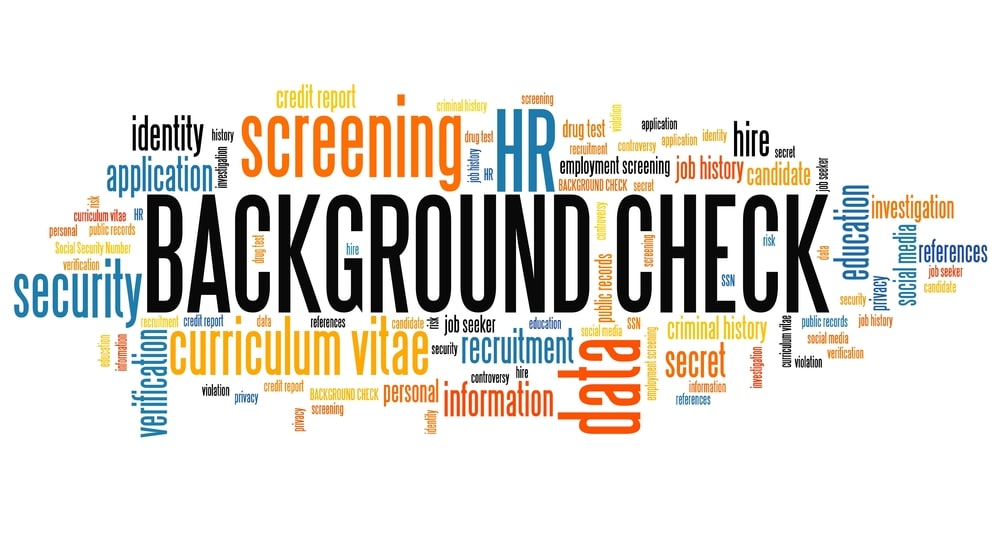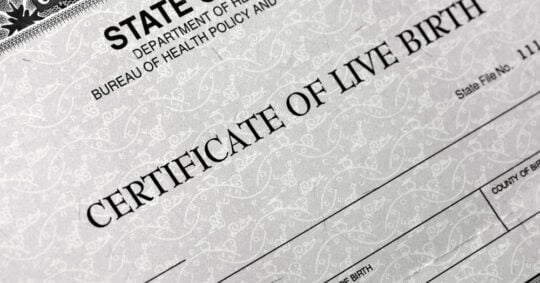How Does a Background Check Verify Employment? A Complete Guide
Cindy Ellis - June 30, 2023

Background checks are run by millions of companies around the world to ensure that they’re hiring the right person. Most background checks for simple jobs may only look into someone’s identity or public records but background checks for more serious professions will often search for credentials, education, and criminal records. For these reasons, it’s important to understand what a background check looks for and how they verify your employment history.
The good news is that it’s not hard to figure out how background checks work and what they show employers. We’ll show you what to expect during your next background check, how a background check verifies employment, and how to check your records before you apply.
What Is a Background Check?
Background checks are public records searches that occur when you apply for a job. The background check process usually includes going through a candidate’s public records that include their work history, education history, criminal records, and court records.
Some pre-employment checks will also look through your credit report and driving records; this only happens when you’re applying for employment in finance or a job where you need a specific driving license. There are also specific types of background checks for military and government jobs. In these cases, even your sealed public records can be opened and reviewed.
Does Every Company Verify Employment?
No, not every company will verify your employment. Companies that verify your employment are usually companies that are hiring for office roles or people with previous work experience. Many retail companies and restaurants won’t do a full employment background check because they’re more friendly for first-time employees. Still, some of these companies will use background checks to ensure that people are who they say they are.
Can Background Checks Be Run Without Your Consent?
No, a background check can’t be run without consent. If you decline to go through an employment verification background check, that’s up to you. That said, the company has the right to not hire you for this reason. Therefore, it’s important to submit to the background check if you want to be as competitive as other applicants.
Can Background Checks Be Run on Existing Employees?
Yes, background checks can be run on existing employees. These are usually situations where an employee is being promoted to a new position within the company. For example, if someone works in a retail store and is now moving into office work, they may have to go through another background check. This may also happen if an employee is entering a position that requires handling money.
While these background checks can happen, employees have to consent to them. Therefore, companies can’t just run background checks on you every single day to see if anything changes.
Now that you know the basics of a background check, let’s look into how employers check your background.
What Do Employers Check with a Background Check?
Aside from verifying your employment with a background check, many employers take things a step further. In fact, it’s not uncommon for comprehensive background checks to comb through your entire history. This often includes the following:
- Employment verification
- Education verification
- Criminal records
- Court records
- Credit records
- Driving records
- Sex offender status
Learn more about each type of background check below.
Employment Verification
Background checks delve into your previous employment records. This includes verifying that the companies you list are real and that your references hold up. In many cases, a potential employer will call the company to see how well you worked when you were there. Still, there are also other ways to do employment verification and we’ll have more on that later.
Education Verification
Education verification is an important part of the background check process. When it comes to education verification, the process is similar to employment verification. The main difference is that companies will contact the educational institution you have listed on your resume. What’s more, they may contact some of your references that you include from the school. Ultimately, the goal of education verification is to ensure that you went to the university.
Education verification may also take things a step further and look over your high school records, grades, and attendance. A great example of this is the police interview process. Interviewers will ask you how many times you were late on the police exam and can verify the information with your high school. So, these background checks can get in-depth depending on who’s running them.
Criminal Records
Criminal records background checks are among the most common. Your criminal history is a public record, which includes arrests and court records. For some jobs, you’ll have to pass a criminal records background check, and failing to do so means you can’t work there. These background checks are usually done by third-party companies or websites and are designed to pull records that are harder to obtain without connection to the proper databases.
Criminal records also aren’t just for convicted criminals. Misdemeanors and other violations may also appear on the background check depending on the agency running it. Jail records, like sentencing, will also appear on the record. In fact, the court dates and when someone was arrested also become available once the case is closed.
Credit Records
A background check that verifies your credit history is looking to see if you’re reliable with money. These background checks are rarer than other types and usually only occur for positions within the government or for jobs pertaining to finance. Some examples include people who work in banks, hedge funds, and other money management firms. Typically, credit record background checks look for things like your credit score, bankruptcies, liens, and defaults.
Credit records will also check your credit scores with all of the major bureau. Make sure you know the score and if it’s high enough to apply or else you’ll waste your time.
Driving Records
The last type of background check that we’ll cover is a driving record check. These are unique background checks that only occur for jobs that involve driving. Some examples include police officers, bus drivers, taxi drivers, and a few government jobs. Therefore, you only have to worry about this type of background check if you’re going to be driving a lot.
When you apply for a new license you may also have to go through a background check or classes. If you want a commercial license, for example, you might have to have a clean driving record. Things that appear on a driving records check include your traffic records, violations, tickets, and court appearances.
Sex Offender Status
One of the biggest roadblocks to employment can be sex offender status. Sex offenders have to be public about what happened, which means it will appear on a pre-employment background check. That said, the range of severity differs based on the offense. For example, someone could have been caught using the bathroom outside, which isn’t the same as assuming someone. Therefore, knowing if sex offender status will show up on a background check gives you a head start to defend yourself.
The types of background checks that we covered are the most common and each type usually comes with basic identity and employment verification.
How Employers Verify Your Employment
Employers have a few ways to verify your employment. They can contact a professional background check company or they can do some of the work themselves. In most cases, companies will also reach out to some of your past employers for more information about you. Learn about the ways that employers verify your employment below.
Contacting Your Previous Employers or Co-workers
One of the first things that employers will do to verify your employment history is to contact your previous employers and co-workers. Employers will usually contact your old supervisor and some co-workers that you list on your resume to ensure that you worked there. Aside from employers, you may also notice that your potential employer will contact other employees at the company in general. Ultimately, they want to get a wide range of opinions about your time and performance at the company.
Some things that a new employer may ask your old employer include things like:
- Your licenses and accreditations
- How many hours you worked
- If you were on time
- Your responsibilities at your previous employer
- How you interacted with co-workers
- If you were written up for anything serious
- Your salary
Depending on your previous employer, some or all of this information may become available. This is one of the reasons that we recommend maintaining a good relationship with your previous employer.
Checking Your References
Most resumes have references. These can be professional and personal references. To verify your employment during a background check a potential employer may contact these references. They may contact references to get personal, professional, and other types of information about you. Only list references that are legitimate to avoid any discrepancies.
References also don’t have to be from your personal life or past work experiences. In fact, companies can reach out to universities, volunteer agencies, and companies you had an internship with. The level of depth that a company wants to get into depends on the position but it’s best to expect just about any situation.
Requesting a Proof of Employment Letter or Pay Stubs
When employers can’t get in touch with your last employers they might request other types of information to verify your employment. The most common request is to see pay stubs. Pay stubs come from a company’s payroll department and show that you made an income. They include things like your gross pay, taxes withheld, and other information.
Aside from pay stubs, companies will also request proof of employment letters. These are letters that talk about your employment and what you did at the company. This becomes common if your previous supervisor is no longer with your old company. Having this information handy can also help you get through a background check for employment verification much faster.
Employers may also go to other lengths to verify your employment but it depends on the circumstances. Next, we’ll show you how to prepare for a background check that verifies your employment.
How to Prepare for a Background Check That Verifies Employment
Preparing for a background check that verifies employment isn’t challenging. It comes down to having everything in order and ensuring that you know what will appear on your records. Most companies will request the following:
- The name of your previous employer
- Employment dates
- Your job title
- How much they paid you (you don’t always have to answer this)
- Responsibilities
- What you accomplished
- References
Having this information ready will prepare you for the employment verification part of a background check.
However, we have some more tips for you below.
Get Your Social Security Records
Social security records prove that you’re the owner of a social security number. You don’t typically need this but if there is a discrepancy on your report you might need one. Depending on what the company needs, you can show them your social security card as proof of ownership.
If you don’t have this card you can visit the social security office in your area. When you visit the office you may need information like your birth certificate, license, and other identification to prove your identity.
Get Your Income Information from the IRS
Companies might want to have a pay stub to verify your income and employment history. That said, not everyone has a pay stub or keeps their pay stubs for many years. In these cases, you’ll have to find another way to verify things like your income. The good news is that the Internal Revenue Service (IRS) is your best friend in these circumstances.
To get your income information you’ll have to call the IRS or visit their website. Once you create an account or speak with someone on the phone you can have your tax records mailed to you or you can view them online. This process is possible for people who have W-2 forms and 1099 forms. All types of income are available and you can see it for most of your tax returns.
Check Your Credit Records
Knowing your credit before applying can help you discuss things with your employer. You’ll want to use a tool like Credit Karma or Experian to get a detailed version of your credit report. Many banks and credit card companies will also show you your credit score. Knowing your credit score will prepare you for what to expect. If you want to work in anything finance-related, for example, you’ll want a credit score that’s over 700.
Additionally, it’s important to stay up-to-date about the information on your credit report. Check for things like settlements, delinquent accounts, and bankruptcies. These items only last for seven years on your credit report but it’s good to check to make sure the record of them is gone. Knowing that this information shows up on a background check can prepare you to answer any questions about it.
Run a Criminal Background Check on Yourself
One of the best ways to prepare for a background check is to run a criminal background check on yourself. There are several tools you can use to run a background check but we have one of the best available options. It’s connected to thousands of public records databases across the United States, so you don’t have to worry about getting reports from each state separately. Our background check tool will also give you your results in less than $10 minutes and it’s more affordable than other options.
When you run a background check with us you’ll discover a lot of information about yourself. Essentially, anything that’s public record appears on the report. When you open the full report you’ll find the following:
- Employment history
- Education history
- Court records
- Criminal records
- Jail records
- Sex offender status
- Email addresses
- Phone numbers
- Addresses
- Relatives
Depending on the depth of your records, you may find some or all of this information about yourself. Also, the amount of employment and education details vary based on how many institutions you’ve been with.
Always Come Prepared for Your Next Employment Verification Background Check
It’s a well-known fact that employers check your previous employment records. How else would they know where you worked and if you’re qualified for the job? That said, there’s no need to panic when you have everything in order. As long as you follow the tips that we covered and know what your public records contain, you’ll have no problems during your next interview.
Always do the best you can to prepare for a background check and do your best to stay on top of your records to avoid any surprises. When in doubt, also make sure you check your records. We have tools available to verify your criminal records, public records, sex offender status, and much more. All of our tools are also fast and easy to use, so feel free to try them all!






